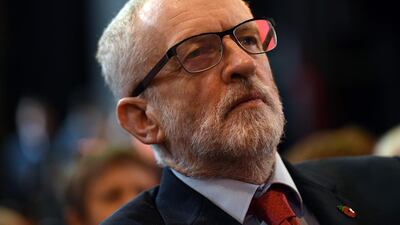After decades as a backbench MP who frequently voted against the Labour Party’s policies as it pursued a ‘moderate’ and ‘centrist’ outlook in government under Tony Blair and Gordon Brown, Jeremy Corbyn earned a reputation as a 'hard-left' and 'disruptive' figure.
He became an MP for Islington North, London in 1983 and was among those vocally opposed the Labour government’s decision to join the 2003 invasion of Iraq. Mr Corbyn also met with members of the Irish Republican Party and it later emerged the British internal intelligence agency MI5 had been monitoring him.
There was considerable surprise in 2015 when the Mr Corbyn, now 70, came out of nowhere to become Labour Party leader in the wake of a disastrous general election led by Ed Miliband.
Mr Corbyn said he was frustrated at the lack of truly left-wing figures in Labour and vowed to fight against the austerity measures implemented by the Conservative government. Many on his front-bench have a similar ideological stance to Mr Corbyn and he has rallied against the elites and vowing to least well off in society, with is campaign slogan as ‘for the many not the few’.
But Mr Corbyn’s forthright approach has divided Labour and he has alienated many ‘moderates’ and famous members, such as Mr Blair and he has been slammed for failing to tackle anti-Semitism within Labour.
Mr Corbyn faced an early shadow cabinet revolt in 2016 with many pro-European Union Labour MPs frustrated at his apparent half-hearted efforts to campaign against Brexit.
Launching his campaign last week the Labour leader said he would “transform” the country, adding: “So we're going after the tax dodgers. We're going after the dodgy landlords. We're going after the bad bosses. We're going after the big polluters. Because we know whose side we're on."
His critics in other parties such as Prime Minister Boris Johnson label Mr Corbyn a "Marxist" who sympathises with extremists. He has been slammed for referring to Hamas and Hezbollah as "friends" and was paid to appear on Press TV, the state-owned Iranian network, between 2009 and 2012.
"He asks about Iran," Mr Johnson said in July in parliament. "A right honourable gentlemen who has been paid by Press TV, who repeatedly sides with the mullahs of Tehran rather than our friends in the United States".
As Labour Party leader in 2016 he also voted against military action against ISIS in Syria and has often spoken in favour of renationalising the railways.


